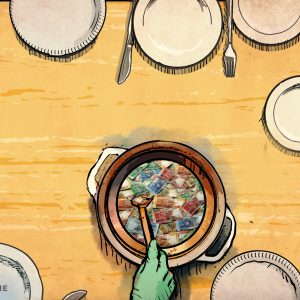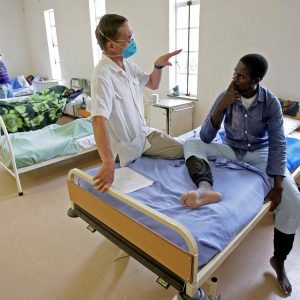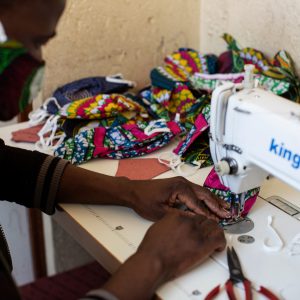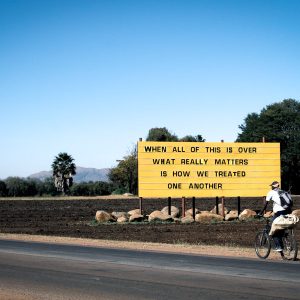The fallout from SA’s Covid-19 lockdown
As South Africa eases out of a stringent initial lockdown, critics suggest that economic devastation and loss of life from neglected diseases will far outstrip the repercussions of the coronavirus …
Author:
9 June 2020
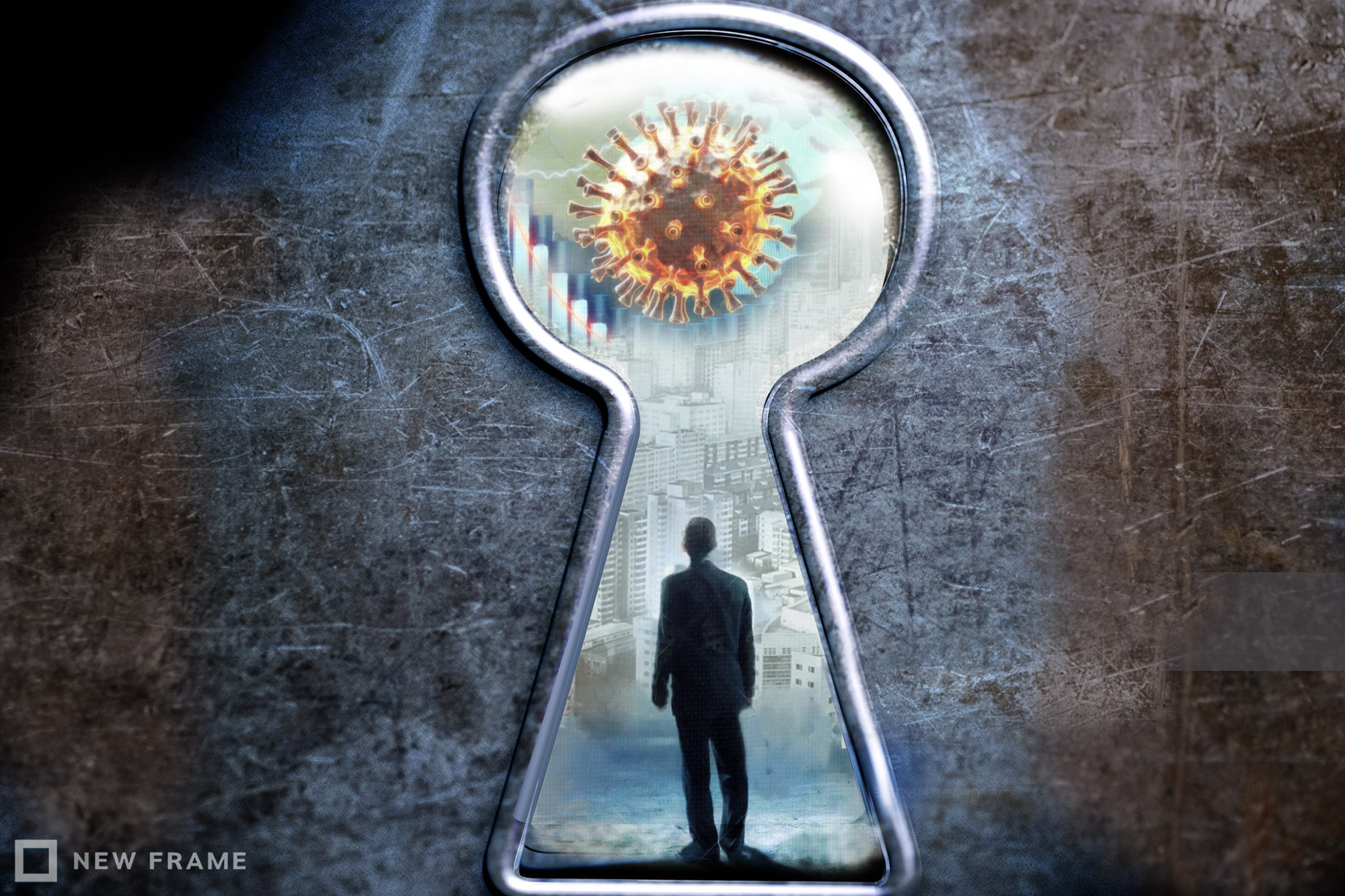
As South Africa migrates from level four to level three of the government’s Covid-19 lockdown and begins to reopen the national economy with a risk-managed strategy, the impact of the harsh 66-day initial lockdown on citizens and the economy is emerging.
The South African Reserve Bank published its first Financial Stability Review for 2020 at the end of May, and the news wasn’t good. The review forecasts that the country’s gross domestic product (GDP) will contract by 7% in 2020. It equates this to half a decade of the country’s past output simply evaporating. The National Treasury’s projections suggest a contraction of between 5.4% and 16.1%, the mild end of which would equate to South Africa’s worst economic performance since the Great Depression of the 1930s.
The treasury’s projection of three million to seven million jobs lost has been downgraded to a figure of between 690 000 and 1.79 million, but the economic devastation is expected to be significant. During the 2008-2009 global economic crisis, South Africa lost about one million jobs.
Related article:
Projections are instruments that deal with the future. But for many South Africans, the economic bite of Covid-19 is already very real.
In the week before South Africa moved from level four to level three of its lockdown, Minister of Health Zweli Mkhize briefed the National Council of Provinces, saying the government “had to move” on reopening the economy because there was a “crisis of hunger, [lost] income, economic recession and social distress”.
Health effects of the lockdown
Nick Hudson from Pandemics – Data & Analytics (Panda) says the adverse health effects of the initial lockdown are clear. Cancer and tuberculosis (TB) diagnoses and treatments have been delayed, and there is a lower vaccination adherence among children.
According to the National Institute for Communicable Diseases, TB testing halved during level five of the lockdown. “We’re just not testing people anymore,” said one medical professional familiar with TB testing programmes.
The Gauteng Department of Health reported that 11 000 HIV and Aids patients and 1 000 TB patients failed to collect their medication in April and May. Medical professionals told New Frame this was going to create a health burden for the country. Some predict a rise in mortality owing to the decline in treatment for HIV and Aids and TB.
Related article:
Peter Baur, a senior lecture at the University of Johannesburg’s school of economics, says that on the social side, the lockdown has meant a rise in societal stress and anxiety, children suffering from malnutrition, and domestic violence and abuse.
Panda research, published on 11 May in a paper titled Quantifying Years of Lost Life in South Africa Due to Covid-19, forecasts that the lockdown will cause a loss of life at least 30 times greater than the loss of life it is intended to prevent.
Was the lockdown successful?
It is clear the social and economic effects of the initial 66-day lockdown are already severe. Baur agrees that the costs are going to be “huge”, saying that although South Africa had to implement some form of lockdown in response to the Covid-19 threat, the longer it is in place, the more the economy will suffer.
Alex van den Heever, the chair of social security systems administration and management studies at the Wits school of governance, says the country needed to shift from an all-out lockdown to an approach in which everything is open and only high-risk sectors remain closed. This is necessary to keep the “engine of the economy going”.
He says South Africa’s lockdown under levels four and five has not worked ideally because the country did not manage to fully suppress the spread of the virus and keep the rate of reproduction – the number of people one carrier subsequently infects – below one. Covid-19 is highly infectious, with a reproduction rate every four days of roughly 2.5 at the onset of the outbreak. Van den Heever says South Africa’s rate of reproduction under levels four and five was 1.3. Italy’s reproduction rate under lockdown was 0.96 and the United Kingdom’s was 0.7.
But Van den Heever is not arguing for a full reopening of the economy. “Government has to figure out how to stop the virus running rampant, without a lockdown,” he says. “Hotels, restaurants and movie theatres, these are examples of high-risk sectors.”
Related article:
KIO Advisory Services economist and founder Duma Gqubule argues that many countries managed to contain the Covid-19 pandemic without a hard lockdown, but says most of these countries had previous experience with the Sars and N1-H1 outbreaks.
He describes the government’s commitment to lockdown as a “fundamentalist position” and argues that it did not use the hard lockdown effectively. “We have had two months of lockdown and we still don’t have enough test kits,” says Gqubule. “You can’t continue the lockdown indefinitely because you haven’t put things in place.”
But Hudson is extremely critical of the decision to lock down the South African population and economy in any way, calling it a “huge mistake” with “massive economic consequences”. He says it is going to take decades to “crawl out of this hole” and we are likely to see no or very little growth in the country for many years.
Ending the initial lockdown
Hudson says Panda concurs with South African Medical Research Council president Glenda Gray that there was no scientific basis for the lockdown. Instead of a lockdown, South Africa should have protected the old and sick and banned large gatherings, but should have continued to allow children to go to school and people to work, using masks, hand hygiene and social distancing.
He says that the “human life versus the economy” framework, which people are using to look at the Covid-19 pandemic, is a “false dichotomy”. Attempts to separate economic and health issues in the fallout from Gray’s media interviews were a perfect example of this.
“It’s nonsense to say these are economic issues and you shouldn’t comment,” says Hudson. “Health experts have to understand the burden of disease and its economic impact. They do this all the time.”
He says calls for a lockdown as a solution to the Covid-19 pandemic were created by a perfect storm of factors. Global infection and death rates were overestimated, and local and international media jumped on these numbers, driving fear into populations who began clamouring for a lockdown.
The reason it’s important to understand these things is so we don’t make the same mistakes in the future when faced with another pandemic threat, says Hudson. “Preliminary studies are already pointing to the lockdown as a weak policy tool in combating Covid-19. People are going to be red-faced.”
As the country moves from level four to level three, it’s important to remember the continuing lockdown effects on businesses that will still not be opening. Hudson says bars and restaurants are “falling like flies” as they have the most “meagre” of safety nets. “The lockdown is crushing these businesses.
This is crucial, says Baur, as small and medium enterprises are the lifeblood of the economy and are largely responsible for job creation in South Africa. “Many of those businesses are not going to make it,” he says. “How can they survive? How many people are going to be laid off?”
Related article:
Gqubule says this is a “huge catastrophe” with many small to medium businesses likely never to open again. He says the scale of support offered by the government to these businesses is a mere “drop in the ocean”.
Gqubule says that the hole in the economy is estimated to be a trillion rand and argues that the government’s R500-billion stimulus package, once stripped of “smoke and mirrors”, effectively equates to an injection of R111-billion of new money or 2,2% of GDP.
Beyond the small and medium enterprises is the informal economy, which provides significant job creation. But the country does not have information on these economies to assess the impact of the lockdown.
Scenarios for recovery
Hudson says the economy was probably in a recession in February and government funding was already being questioned then, so he wonders how the government is going to absorb the shock of the lockdown when faced with an economy in a perilous state. “We were in a weak state going in. We are now in a devastated state,” he says.
Baur agrees. The South African economy was rocked by the 2008 global financial crisis and was again affected in 2012 by the European crisis. “Every seven or eight years, our economy has faced a crisis,” he says. This is because South Africa has an open economy that is affected by conditions in its large trading partners, including the US, Europe and China. Baur says the global economy is already in a recovery phase from the global pandemic and if South Africa hasn’t released its businesses early enough, the economy will be left behind.
Hudson says the institutional damage to the economy has already occurred and when the recovery comes, it will be a sharp one but will not return the country to pre-Covid-19 levels. Countries with low budget deficits and big sovereign wealth funds will recover better than others, while countries that didn’t opt for a stringent lockdown of their economies, such as Sweden, South Korea and Japan, will face much lower levels of economic devastation.
Gqubule believes that any talk of a post-Covid recovery is a “convenient political deflection”. He says, “For government to be talking about a post-covid society when they haven’t dealt with the crisis is like having a house that is leaking and instead of fixing the leak I must dream of a new house.”
Gqubule says that South Africa was already in crisis before the pandemic. “Where we were in January was not a good place. There were lots of layoffs in January, we had horrendous load-shedding and we had already had two recessions in two years.”
Related article:
Gqubule says that before Covid-19 hit South Africa, the country was forecast to make it three recessions in three years. He says most forecasts suggest the country is facing an economic contraction of more than 10% because of Covid-19 and the subsequent lockdown, and that unemployment could exceed 50%.
Miriam Altman, the convener of the Covid-19 Economists Group, which is working closely with the government, has published an academic paper that identifies scenarios of recovery for the South African economy. In one scenario, a lockdown is used as the “primary strategy for controlling the virus” and is in place for about six months. This would result in a “weak rebound” and the economy would stagnate. In this scenario, the 2020-2021 financial year would see GDP decrease by 15% to 20% and employment fall by 2.5 million to 3.2 million.
In another scenario, the lockdown lasts 65 days and is followed by a progressive reopening. There would be a stronger economic rebound as less firms would permanently shut down and fewer workers would be retrenched. In this scenario, GDP would fall by 10% and 1.6 million jobs would be lost.
Testing backlogs
As South Africa brings its economy back on line, Van den Heever says the country’s testing and contact tracing regime is going to be key in managing the spread of the coronavirus. Testing capacity has increased, but needs to be sped up rapidly. “If your testing fails, then you allow the virus to run rampant through society,” he says. It is key that test results be turned around in 24 hours.
Related article:
A medical professional New Frame spoke to says test results are taking an average of seven to 10 days to be confirmed. “The backlogs are big,” he said. National Health Laboratory Service chief executive Kamy Chetty said at the end of May that a backlog of more than 80 000 tests had built up nationwide. Leading medical professionals have alleged that the slow turnaround in test results is threatening patient management and compromising healthcare workers’ safety. Van den Heever points out that it took “Patient One” in Khayelitsha nine days to get her test back.
Most of the government’s contact tracing efforts are being done manually. Van den Heever says the country needs to ramp up the use of tracing applications that use geolocation to find people who may have unwittingly been in contact with a Covid-19-positive person.

